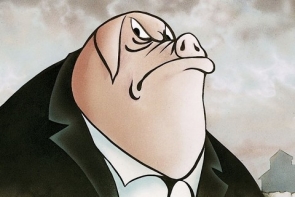
In the novel, Napoleon is depicted as a ferocious boar, sweeping away all obstacles in his path. Therefore, his main distinctive feature is the thirst for absolute power. Napoleon acts through a competent combination of political propaganda and bloody terror. This explains his authority among the animals on the farm. The decisions of Napoleon denounce him as a dictator. His crimes against comrades go unpunished because of the reigning atmosphere of fear, akin to the Soviet political regime. Orwell demonstrates Napoleon’s final betrayal of the ideals of the revolution when he turns into the former owner, Jones. He eats from his plate, drinks alcohol, wears his clothes and even gets on two legs. Napoleon changes commandments to himself, proving to other animals his right to power and control. After all, according to his convictions, he belongs to the highest caste. Napoleon refers to those leaders who do nothing for the common good and act solely out of selfish motives. Before us is a tyrant who does not spare the lives of others for his own comfortable existence.
Napoleon in the Essays


Leave a Reply